ADDICTION
ALCOHOL DEPENDENCE
QUIT SMOKING
ALLERGY
ANTI FUNGAL
FUNGAL INFECTION
FUNGAL NAIL INFECTIONS
ANTI-REJECTION DRUGS
ANTI WORM
ANTIBIOTIC
BACTERIAL INFECTIONS
ARTHRITIS
GOUT
OSTEOARTHRITIS
RHEUMATOID ARTHRITIS
BLOOD
LOW PLATELET COUNT
THROMBOPHLEBITIS
VARICOSE VEINS
COLON
ANAL FISSURE
PILES
ULCERATIVE COLITIS
DIABETES CARE
DIABETES INSIPIDUS
DIABETES TYPE
DIABETIC FOOT ULCERS
GLUCOSE MONITOR
EYES/EAR CARE
DRY EYES
EYE CARE
EYE EXAMINATION
EYE INFECTION
EYE LASHES
EYE PAIN
GLAUCOMA
OCULAR HYPERTENSION
UVEITIS
FEVER CARE
MALARIA
RHEUMATIC FEVER
TYPHOID FEVER
GASTROINTESTINAL
ACIDITY
CONSTIPATION
CROHN'S DISEASE
DIARRHOEA
GALLBLADDER STONES
INTESTINAL ULCERS
IRRITABLE BOWEL SYNDROME
MOTION SICKNESS
NAUSEA
Zoldria 4 mg (Zoledronic Acid)
| Active Ingredient (Generic Name): | Zoledronic Acid |
|---|---|
| Indication: | Osteoporosis |
| Manufacturer: | Cipla Limited |
| Packaging: | 5 ml in one vial |
| Strength: | 4 mg |
From: $36.00
Zoldria 4 Mg contains zoledronic acid, an inhibitor of osteoclastic bone resorption commonly used for osteoporosis, bone metastases, and Paget’s disease treatment. It binds to bone hydroxyapatite, decreasing osteoclast activity, which helps reduce bone resorption, slow down bone turnover, and enhance bone density. This medication is prescribed for bone cancer, metastatic bone disease, osteoporosis prevention, and bone health promotion. While mild side effects like fever, fatigue, and muscle pain are typical, serious adverse reactions are possible. Further exploration of Zoldria 4 Mg will provide insights into its uses, dosage, and potential interactions.
Main Points
- Zoldria 4 Mg is a medication that inhibits osteoclastic bone resorption, commonly used for treating osteoporosis, bone metastases, and Paget’s disease.
- It binds to hydroxyapatite in bone tissue, reducing bone resorption, slowing bone turnover, and enhancing bone density.
- This medication is indicated for bone cancer, metastatic bone disease, Paget’s disease management, and osteoporosis prevention.
- Common side effects may include fever, fatigue, and muscle pain, while severe adverse reactions can include hypocalcemia and atrial fibrillation.
- The recommended dosing schedule advises administering Zoldria 4 Mg every 3-4 weeks for patients with multiple myeloma and bone metastases, with serum creatinine levels monitored before each dose.
What Is Zoledronic Acid?
Zoledronic acid, also known as Zometa, is a bisphosphonate medication used to treat bone-related disorders by inhibiting osteoclastic bone resorption. It is effective in managing conditions like osteoporosis, bone metastases, and Paget’s disease. Zoledronic acid binds to bone hydroxyapatite, reducing bone resorption by inhibiting osteoclast activity. It is also used in cancer treatment, especially for patients with bone metastases, and for managing hypercalcemia of malignancy. Zoledronic acid is a valuable option for various bone-related conditions due to its efficacy and versatility.
How Zoldria 4 Mg Works
Zoledronic acid in Zoldria 4 Mg binds to hydroxyapatite in bone tissue, inhibiting osteoclast activity and reducing bone resorption. By targeting areas of high bone turnover, the acid slows down bone resorption, allowing for bone rebuilding and strengthening. This mechanism helps treat conditions like osteoporosis by improving bone density and reducing fracture risk.
Uses of Zoldria 4 Mg
Zoldria 4 Mg is utilized for treating bone cancer, managing Paget’s disease, and preventing osteoporosis. It helps reduce bone damage and promote bone health, making it a versatile treatment option for these conditions.
Bone Cancer Treatment
Zoldria 4 Mg, a potent bisphosphonate, is commonly prescribed for treating bone cancer, specifically metastatic bone disease. It helps reduce the occurrence of skeletal-related events and alleviate associated symptoms. Taking Zoldria 4 Mg can lower the risk of bone fractures, hypercalcemia, and spinal cord compression, improving the patient’s quality of life. Symptoms of bone cancer, such as pain, limited mobility, weakness or numbness in the legs, increased fracture risk, and high calcium levels, can be alleviated with this medication.
Paget’s Disease Management
Managing Paget’s disease involves using Zoldria 4 Mg, which has shown efficacy in addressing this chronic bone disorder characterized by abnormal bone remodeling. Understanding how Zoldria 4 Mg can alleviate symptoms and enhance quality of life is essential when considering treatment options.
| Symptom | Before Treatment | After Treatment |
|---|---|---|
| Bone Pain | Severe | Mild |
| Bone Deformity | Present | Reduced |
| Fracture Risk | High | Low |
| Joint Pain | Moderate | Mild |
| Fatigue | High | Low |
Zoldria 4 Mg’s mechanism of inhibiting bone resorption and reducing bone turnover helps alleviate Paget’s disease symptoms. By taking Zoldria 4 Mg, individuals may experience decreased bone pain, lowered fracture risk, and improved mobility. As evidenced in the table, Zoldria 4 Mg treatment can significantly improve overall condition, allowing for better management of the disease.
Osteoporosis Prevention
When considering osteoporosis prevention, Zoldria 4 Mg can be an effective solution due to its ability to inhibit bone resorption, reducing the risk of fractures and promoting bone strength. The medication’s anti-resorptive properties slow down bone tissue breakdown, allowing for better absorption of essential minerals like calcium. Taking Zoldria 4 Mg can help:
- Lower the risk of vertebral fractures by up to 70%
- Increase bone density in the spine and other areas
- Decrease osteoporosis-related fractures
- Enhance overall bone health and strength
- Reduce the risk of osteoporosis-related complications
Incorporating Zoldria 4 Mg into your treatment plan can proactively support bone health and decrease the likelihood of osteoporosis-related fractures.
Zoldria 4 Mg Side Effects
It is essential to monitor your body for potential adverse reactions and long-term complications while taking Zoldria 4 Mg. Common side effects like fever, nausea, and muscle pain are usually mild and temporary. However, it is crucial to remain vigilant for any more severe adverse reactions or long-term complications that could have a significant impact on your health.
Common Side Effects
Common side effects of Zoldria 4 Mg may include fever, fatigue, muscle or bone pain, nausea, vomiting, constipation, anemia, headache, and dizziness. These side effects are typically mild and temporary. It’s important to consult your doctor if you have any concerns. Not everyone will experience these side effects, and their intensity can vary. If you have any questions or worries about symptoms, seek guidance from your healthcare provider to manage any side effects effectively.
Serious Adverse Reactions
While mild side effects are common with Zoldria 4 Mg, it’s crucial to be aware of the potential serious adverse reactions that can occur. These reactions, although rare, can be life-threatening and require immediate medical attention if experienced.
| Serious Adverse Reaction | Symptoms | Treatment |
|---|---|---|
| Hypocalcemia | Muscle weakness, cramps, twitching | Calcium supplements, vitamin D supplements |
| Hypophosphatemia | Muscle weakness, bone pain | Phosphate supplements |
| Atrial Fibrillation | Rapid heartbeat, palpitations | Cardiac monitoring, medication |
| Osteonecrosis of the Jaw | Jaw pain, tooth loss | Dental evaluation, antibiotics |
If you encounter any of these serious adverse reactions, your healthcare provider may adjust your dosage or suggest alternative treatments. It’s essential to adhere to their guidance diligently and attend all follow-up appointments to monitor your condition. When it comes to your health, it’s better to be cautious. If you are uncertain about any symptoms, do not hesitate to contact your healthcare provider.
Long-term Complications
Prolonged use of Zoldria 4 Mg can result in kidney damage, bone fractures, osteonecrosis of the jaw (ONJ), atypical femoral fractures, kidney damage, hypocalcemia, and dental problems. These long-term complications may significantly impact your quality of life. Continued use of this medication increases the risk of developing severe and lasting complications. It is crucial to carefully consider the benefits and risks of Zoldria 4 Mg and consult with your doctor to determine the most suitable treatment for your specific needs.
Common Adverse Reactions
Zoledronic acid, found in Zoldria 4 mg, may lead to common adverse reactions such as nausea, fatigue, and anemia. Understanding these potential side effects is essential when considering Zoldria 4 mg. These reactions, including mild to moderate stomach upset with vomiting, unusual tiredness, and low red blood cell count, can be effectively managed with appropriate medical attention.
| Adverse Reaction | Frequency | Description |
|---|---|---|
| Nausea | Common (up to 76%) | Mild to moderate stomach upset, sometimes accompanied by vomiting |
| Fatigue | Common (up to 44%) | Unusual tiredness or lack of energy |
| Anemia | Uncommon (up to 10%) | Low red blood cell count, potentially causing pale skin, weakness, and shortness of breath |
It’s important to note that not everyone will experience these adverse reactions, and their intensity can vary. If you do encounter any of these side effects while taking Zoldria 4 mg, consulting your healthcare provider is crucial for proper management and support to ensure the effectiveness of your treatment.
Zoldria 4 Mg Dosage Guidelines
Prior to administering Zoldria 4 Mg, it is essential to comprehend the dosage guidelines for ensuring safe and effective treatment. It is necessary to strictly adhere to the recommended dosage administration protocol, follow the dosing schedule guidelines accurately, and understand the protocol for missed doses. By following these guidelines meticulously, you can reduce the chances of adverse reactions and optimize the medication’s efficacy.
Dosage Administration
When administering Zoldria 4 Mg, reconstitute the lyophilized powder with 5 mL of sterile water for injection and deliver the dose via intravenous infusion over a minimum of 15 minutes. Monitor essential signs and watch for hypocalcemia symptoms like muscle cramps or twitching. Avoid mixing Zoldria 4 Mg with calcium-containing solutions to prevent precipitation. The recommended dose for hypercalcemia of malignancy is 4 mg, and for multiple myeloma and bone metastases, it is 4 mg every 3-4 weeks.
Dosing Schedule Guidelines
It is essential to adhere to a specific dosing regimen when administering Zoldria 4 Mg to patients with hypercalcemia of malignancy, multiple myeloma, and bone metastases. The recommended dose for hypercalcemia of malignancy is 4 mg infused over a minimum of 15 minutes, with the option to repeat the dose after 7 days if serum calcium levels remain elevated. Patients with multiple myeloma and bone metastases should receive 4 mg via infusion over at least 15 minutes every 3 to 4 weeks. Monitoring serum creatinine levels before each dose and adjusting the infusion rate based on renal function is crucial. Adequate hydration before and after the infusion is recommended to reduce the risk of renal toxicity. By following these dosing guidelines, the therapeutic effects of Zoldria 4 Mg can be optimized while minimizing potential adverse reactions.
Missed Dose Procedure
If you miss a scheduled dose of Zoldria 4 Mg, promptly contact your healthcare provider to reschedule the infusion and adjust the treatment plan as necessary. Taking swift action is crucial to minimize any potential impact on your treatment outcome.
When a dose is missed, your healthcare provider will review your treatment plan and recommend the appropriate steps. This may involve dosage adjustments, changes in the infusion schedule, or modifications to the treatment regimen.
Remember these key points:
- Inform your healthcare provider promptly if a dose is missed
- Provide detailed information about the missed dose, including the date and time
- Follow your provider’s guidance for rescheduling the infusion
- Note that missing multiple doses can affect the effectiveness of your treatment
- Maintain a record of your treatment schedule and dosage for better adherence
Precautions and Contraindications
Before starting Zoldria 4 mg treatment, your doctor will assess your medical history to identify any contraindications, such as hypersensitivity to zoledronic acid or bisphosphonates, and evaluate the risk of adverse reactions.
Certain precautions are necessary for safe treatment. Prior to starting, a dental examination and preventive dentistry may be required due to the increased risk of osteonecrosis of the jaw associated with bisphosphonates. It is important to maintain good oral hygiene and have regular dental check-ups during the treatment period.
Avoid using Zoldria 4 mg in patients with known hypersensitivity to zoledronic acid or bisphosphonates. Postpone treatment if there are unstable dental or jaw conditions. Use caution and weigh the benefits against the risks when considering Zoldria 4 mg during pregnancy or lactation. Correct hypocalcemia before initiating treatment.
Discuss your medical history, allergies, and current medications with your doctor to ensure the safe and effective use of Zoldria 4 mg.
Zoldria 4 Mg Interactions
Your doctor will assess your current medications and supplements to check for potential interactions with Zoldria 4 mg. Combining Zoldria 4 mg with certain medications can raise the risk of adverse effects. Interactions to be aware of include:
- Bisphosphonates: Concurrent use of other bisphosphonates with Zoldria 4 mg may heighten the risk of hypocalcemia (low calcium levels).
- Calcium supplements: Calcium intake can hinder the absorption of Zoldria 4 mg, potentially reducing its effectiveness.
- Antacids: Antacids containing aluminum, magnesium, or calcium can interfere with the absorption of Zoldria 4 mg.
- NSAIDs: Nonsteroidal anti-inflammatory drugs (NSAIDs) could elevate the likelihood of gastrointestinal adverse effects when taken alongside Zoldria 4 mg.
- Thalidomide: Using thalidomide concurrently with Zoldria 4 mg may increase the risk of renal toxicity.
It is crucial to disclose all your current medications and supplements to your doctor to ensure the safe and effective use of Zoldria 4 mg.
Overdose Symptoms and Treatment
In case of an excessive intake of Zoldria 4 mg, urgent medical attention is essential to reduce potential harm. Symptoms of overdose may include low levels of calcium, phosphate, and magnesium, leading to muscle weakness, numbness, tingling sensations, seizures, irregular heartbeat, and muscle cramps.
If you experience any of these symptoms, seek immediate medical assistance. Treatment usually involves providing calcium, magnesium, and phosphate supplements to counter the effects of the overdose. In severe cases, hospitalization may be necessary for monitoring and managing complications. Providing accurate details about the overdose, such as the amount and timing of the excessive dose, is crucial for proper care. Prompt medical attention can help minimize the risk of serious complications and ensure a successful recovery.
Storage and Disposal Guidelines
Proper storage and disposal of Zoldria 4 mg are crucial to maintaining its effectiveness and preventing accidental misuse. Adhere to these guidelines for safe storage and disposal:
- Store Zoldria 4 mg in its original packaging, away from direct sunlight, moisture, and out of reach of children.
- Keep the medication at room temperature, between 15?C to 30?C (59?F to 86?F).
- Do not freeze or refrigerate the medication.
- Dispose of any unused or expired Zoldria 4 mg through a drug take-back program or as instructed by your healthcare provider or local authorities.
- Avoid flushing Zoldria 4 mg down the toilet or pouring it down the drain to prevent harm to aquatic life.
Zoldria 4 Mg for Bone Cancer
Zoldria 4 mg is an intravenous bisphosphonate prescribed to reduce the risk of skeletal-related events in patients with bone cancer. This medication targets bone lesions to help prevent bone fractures, spinal cord compression, and other skeletal-related complications. The recommended dosage for Zoldria 4 mg is 4 mg every 3-4 weeks for conditions such as bone cancer, hypercalcemia, multiple myeloma, and solid tumors.
Patient Reviews and Testimonials
Patients who have undergone Zoldria 4 mg infusions for bone cancer and other conditions often report notable improvements in their quality of life. Understanding what to anticipate from the treatment can be helpful, and insights from individuals with similar experiences are valuable.
Key points from patient feedback include:
- Reduction in bone pain: Many patients experience a significant decrease in bone pain post Zoldria 4 mg infusions, leading to enhanced daily functioning and overall well-being.
- Improved mobility: By alleviating bone damage and pain, Zoldria 4 mg can assist in regaining mobility and independence, enabling participation in enjoyable activities.
- Increased energy: Patients frequently note higher energy levels following treatment, offering relief from the fatigue often associated with bone cancer.
- Better sleep: Improved sleep quality is frequently reported by patients due to reduced bone pain and discomfort, essential for overall health.
- Enhanced quality of life: By alleviating symptoms and slowing disease progression, Zoldria 4 mg can significantly enhance overall quality of life, allowing individuals to focus on important aspects of their lives.
Frequently Asked Questions
Can I Take Zoldria 4 Mg With Other Medications for Osteoporosis?
If you are considering taking a medication for osteoporosis along with other treatments, it is recommended to consult your doctor first. Your doctor will assess your medical history, current medications, and any potential interactions to create a personalized treatment plan. It is crucial to ensure that the medications are compatible and safe for you.
How Long Does It Take to See Results From Zoldria 4 Mg Treatment?
Results from Zoldria 4 mg treatment typically manifest within 3-6 months, as bone density improvements become noticeable. This may lead to a reduction in fracture risk and alleviation of bone pain. Individual responses to treatment vary, and your doctor will monitor your progress closely to make any necessary adjustments to your treatment plan.
Is Zoldria 4 Mg Safe for Patients With Kidney Problems?
Patients with kidney impairment should use caution when taking medications. Zoldria 4 mg requires dose adjustments in individuals with kidney dysfunction. It is crucial to consult a healthcare provider to assess kidney function and determine the appropriate dosage. The doctor will consider the benefits and risks to ensure safe and effective treatment.
Can I Drive or Operate Heavy Machinery After Taking Zoldria 4 Mg?
After receiving a Zoldria 4 mg infusion, it is advisable to refrain from driving or operating heavy machinery. This medication may induce dizziness, fatigue, and blurred vision, affecting your ability to react promptly. It is recommended to wait until these side effects subside, typically within a few hours. Resting and avoiding strenuous activities, such as driving, until you feel alert and focused is essential for your safety.
Will Zoldria 4 Mg Affect My Dental Health or Dental Work?
When getting dental work done, it’s important to consider the potential impact on your dental health. Medications like Zoldria 4 mg, a type of bisphosphonate, may affect your oral health, especially if you require a tooth extraction or oral surgery. There is a rare but serious risk of developing osteonecrosis of the jaw. Make sure to inform your dentist about your medication so they can take necessary precautions to reduce any associated risks.
Conclusion
You have been prescribed Zoldria 4 mg, a potent bisphosphonate medication. This medication is effective in treating conditions like bone cancer and hypercalcemia. Understanding its mechanisms, uses, and potential side effects is essential for safe and effective treatment. Follow storage and disposal guidelines carefully. If you have any questions or concerns, consult your doctor for further guidance.
Based on 0 reviews
Only logged in customers who have purchased this product may leave a review.


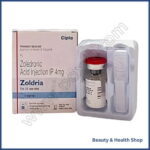
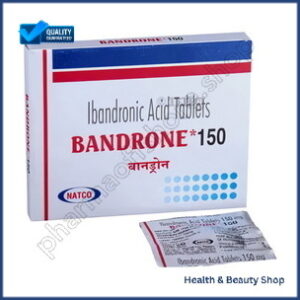

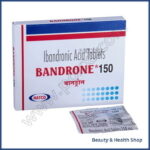

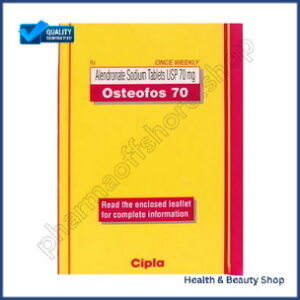
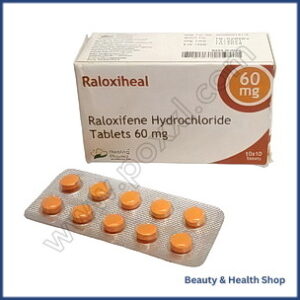
There are no reviews yet.